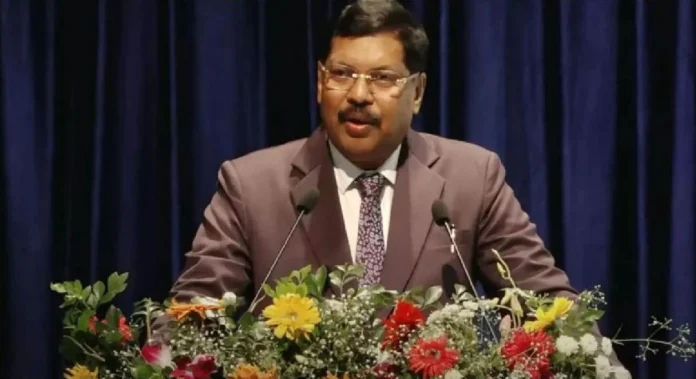Chief Justice of India BR Gavai has stressed on the importance of legal fundamentals, saying that core subjects like the Constitution, the Code of Civil Procedure, the Contract Act, criminal laws and others formed the bedrock of a sound professional life.
Addressing the 22nd Convocation of NALSAR University of Law on Friday, the CJI said these legal fundamentals were the daily bread & butter for a lawyer. There was no alternative to understanding the basic nuances of law, he added.
Stressing on the importance of mentorship in the legal profession, CJI Gavai exhorted all senior lawyers and judges to maje efforts and mentor young lawyers with full enthusiasm.
The CJI said mentorship was an act of belief, support and sharing of wisdom, which had the potential to change the life of a young lawyer forever.
He said with full honesty that he came this far not only due to his hard work, but also because of the efforts made by his mentors.
The efforts of a fresh law graduate mattered as much as the efforts of a senior, who opened the door for him. Sometimes, a senior saw in a law graduate something, which he could not see for himself or may be, realised later, added CJI Gavai.
Calling mental stress a feature of the legal profession, he said law was an emotionally demanding and isolating profession, which involved long hours and high expectations. The culture was sometimes ruthless, he added.
Noting that legal professionals felt the pressure not just to succeed, but to appear successful, he urged them not to hide their struggles.
Citing the words of Audre Lorde, the CJI said that caring for oneself could not always be termed as self-indulgence. It was an act of self-preservation and political warfare.
He further cited the 2023 study titled The Making of Lawyers’ Careers: Inequality and Opportunity in the American Legal Profession.
He observed that the law school chosen by the law graduates significantly influenced their legal practice. The place where the lawyers began their careers heavily shaped their later career paths, whether in India or abroad, he added.
He noted that a student from a National Law School in a metro city might be seen as ‘better placed’ than one from a smaller university, not necessarily because of skill, but because of perception.


